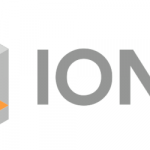Quantum News Briefs August 17: Multiverse Computing and IKERLAN Detect Defects in Manufacturing with Quantum Computing Vision, Chinese Researchers Demonstrate Entanglement of Two Quantum Memory Systems 12.5km Apart, IonQ Aria Now Available on Azure Quantum Platform and MORE

Quantum News Briefs August 17 opens with Multiverse Computing and IKERLAN Detect Defects in Manufacturing with Quantum Computing Vision followed by the announcement from Chinese Researchers Demonstrating Entanglement of Two Quantum Memory Systems 12.5km Apart. Next is the announcement that IonQ Aria Now Available on Azure Quantum Platform and MORE.
*****
New Research from Multiverse and IKERPLAN Shows First Implementation of Quantum Computer Vision for Manufacturing Problem
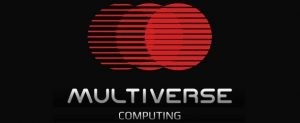
Multiverse Computing and IKERLAN, a leading center in technology transfer providing competitive value to industry, have released the results of a joint research study that detected defects in manufactured car pieces via image classification by quantum artificial vision systems. Read the complete announcement on Multiverse Computing.
The research team developed a quantum-enhanced kernel method for classification on universal gate-based quantum computers as well as a quantum classification algorithm on a quantum annealer. Researchers found that both algorithms outperformed common classical methods in the identification of relevant images and the accurate classification of manufacturing defects.
“To the best of our knowledge, this research represents the first implementation of quantum computer vision for a relevant problem in a manufacturing production line,” said Ion Etxeberria, CEO of IKERLAN. “This collaborative study confirmed the benefits of applying quantum methods to real-world industrial challenges. We strongly believe that quantum computing will play a key role in providing AI-based solutions to particularly complex scenarios.”
Founded in 1974, IKERLAN is a leading center in technology transfer providing competitive value to industry. It offers integral solutions combining different technological domains in two main areas: Electronics, Information and Communication Technologies (EICT), and Energy and Mechatronics. The organization a co-operative member of the MONDRAGON Corporation and the Basque Research and Technology Alliance (BRTA).
*****
Chinese Researchers Demonstrate Entanglement of Two Quantum Memory Systems 12.5km Apart
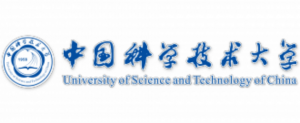 Researchers at the University of Science and Technology of China and Jinan Institute of Quantum Technology have recently demonstrated quantum entanglement between two memory devices located at 12.5 km apart from each other within an urban environment. Their paper, published in Physical Review Letters, could be a further step towards the development of a quantum internet.
Researchers at the University of Science and Technology of China and Jinan Institute of Quantum Technology have recently demonstrated quantum entanglement between two memory devices located at 12.5 km apart from each other within an urban environment. Their paper, published in Physical Review Letters, could be a further step towards the development of a quantum internet.
“In 2020, we published a paper in which we demonstrate the entanglement of two quantum memories via a fiber link of 50 km,” Xiao-Hui Bao, one of the researchers who carried out the study, told Phys.org. “In that experiment, both two memories we used were located within one lab and thus not fully independent. The next step in our research was to make the two memories fully independent, while placing a long distance between them.”
In their experiment, Bao and his colleagues introduced two quantum nodes in different locations in an urban environment, placing them at a 12.5 km distance from one another. In the first node, dubbed node A, they entangled their first quantum memory with a single photon. This single photon was then sent to node B and stored within the second quantum memory.
“In this way we entangle the two remote quantum memories,” Bao explained. “Since the photon emitted from our memory is near infrared (795 nm), being not suitable for low-loss transmission in fiber, we make use of the quantum frequency conversion technique to shift the photon’s wavelength to 1342 nm instead, which improves the overall transmission efficiency significantly.”
*****
IonQ Aria Available on Azure Quantum Platform
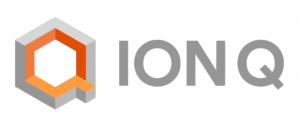 IonQ has announced the availability of IonQ Aria exclusively on the Azure Quantum platform, at launch. Read the complete details on IonQ site; Quantum News Briefs summarizes below.
IonQ has announced the availability of IonQ Aria exclusively on the Azure Quantum platform, at launch. Read the complete details on IonQ site; Quantum News Briefs summarizes below.
Through Azure Quantum, users from around the world can access one of the industry’s most powerful quantum systems with a few simple keystrokes, paving the way for new quantum applications in areas like machine learning and logistics. IonQ Aria is the second IonQ system to join the Azure Quantum platform, following the rollout of IonQ Harmony in late 2019.
Made available to public beta customers earlier this year, IonQ Aria currently stands as the best, publicly disclosed quantum computer in the world, with an algorithmic qubit (#AQ) count of 23.
The higher #AQ count can potentially allow the quicker development of quantum simulations and algorithms than any previous generation of quantum computers. Select early customers have already begun using the system to develop algorithms that mitigate risk in finance, model chemical reactions within EV batteries, and improve image classification for future autonomous vehicles. Customers who purchase monthly subscription access to IonQ Aria through Azure Quantum will receive premium onboarding, consultation services and technical support as part of the plan.
*****
Magnetic Quantum Material Provides Platform for Probing Next-Generation Information Technologies
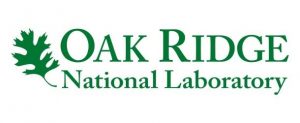 Scientists at the Department of Energy’s Oak Ridge National Laboratory (ORNL) used neutron scattering to determine whether a specific material’s atomic structure could host a novel state of matter called a spiral spin liquid. The team discovered the first 2D system to host a spiral spin liquid by tracking tiny magnetic moments known as “spins” on the honeycomb lattice of a layered iron trichloride magnet.
Scientists at the Department of Energy’s Oak Ridge National Laboratory (ORNL) used neutron scattering to determine whether a specific material’s atomic structure could host a novel state of matter called a spiral spin liquid. The team discovered the first 2D system to host a spiral spin liquid by tracking tiny magnetic moments known as “spins” on the honeycomb lattice of a layered iron trichloride magnet.
The finding provides a test bed for future studies of physics phenomena that may drive next-generation information technologies. These include fractons and skyrmions. Fractons are collective quantized vibrations that may prove promising in quantum computing. Skyrmions are novel magnetic spin textures that could advance high-density data storage.
In quantum materials, electron spins can behave collectively and exotically. If one spin moves, all react – an entangled state Einstein called “spooky action at a distance.” The system stays in a state of frustration – a liquid that preserves disorder because electron spins constantly change direction, forcing other entangled electrons to fluctuate in response.
A long-held theory predicted that the honeycomb lattice can host a spiral spin liquid. This is a novel phase of matter in which spins form fluctuating corkscrew-like structures.
However, until the present study, experimental evidence of this phase in a 2D system had been lacking. A 2D system comprises a layered crystalline material in which interactions are stronger in the planar than in the stacking direction.
*****
Hedge Funds Weigh In On Arqit Quantum

Several hedge funds and other institutional investors have recently bought and sold shares of Arqit Quantum according to August 15 Market Watch. Millennium Management LLC raised its stake in shares of Arqit Quantum by 176.6% during the second quarter. Millennium Management LLC now owns 15,329 shares of the company’s stock valued at $97,000 after purchasing an additional 35,329 shares during the period. JPMorgan Chase & Co. grew its holdings in Arqit Quantum by 1,086,718.5% during the 2nd quarter. JPMorgan Chase & Co. now owns 293,441 shares of the company’s stock valued at $1,852,000 after purchasing an additional 293,414 shares in the last quarter. Advisory Services Network LLC acquired a new stake in Arqit Quantum during the 2nd quarter valued at $158,000. US Bancorp DE increased its stake in Arqit Quantum by 4,755.6% during the 2nd quarter. US Bancorp DE now owns 12,139 shares of the company’s stock worth $76,000 after buying an additional 11,889 shares during the period. Finally, Truist Financial Corp boosted its position in Arqit Quantum by 100.0% in the 2nd quarter. Truist Financial Corp now owns 27,040 shares of the company’s stock valued at $171,000 after buying an additional 13,520 shares during the last quarter. 7.54% of the stock is owned by institutional investors and hedge funds.
Several research firms recently commented on ARQQ. HC Wainwright initiated coverage on shares of Arqit Quantum in a report on Tuesday, April 26th. They issued a “buy” rating and a $16.00 price target on the stock. Deutsche Bank Aktiengesellschaft began coverage on shares of Arqit Quantum in a research note on Tuesday, July 19th. They issued a “hold” rating and a $7.00 target price on the stock.
Sandra K. Helsel, Ph.D. has been researching and reporting on frontier technologies since 1990. She has her Ph.D. from the University of Arizona.


















